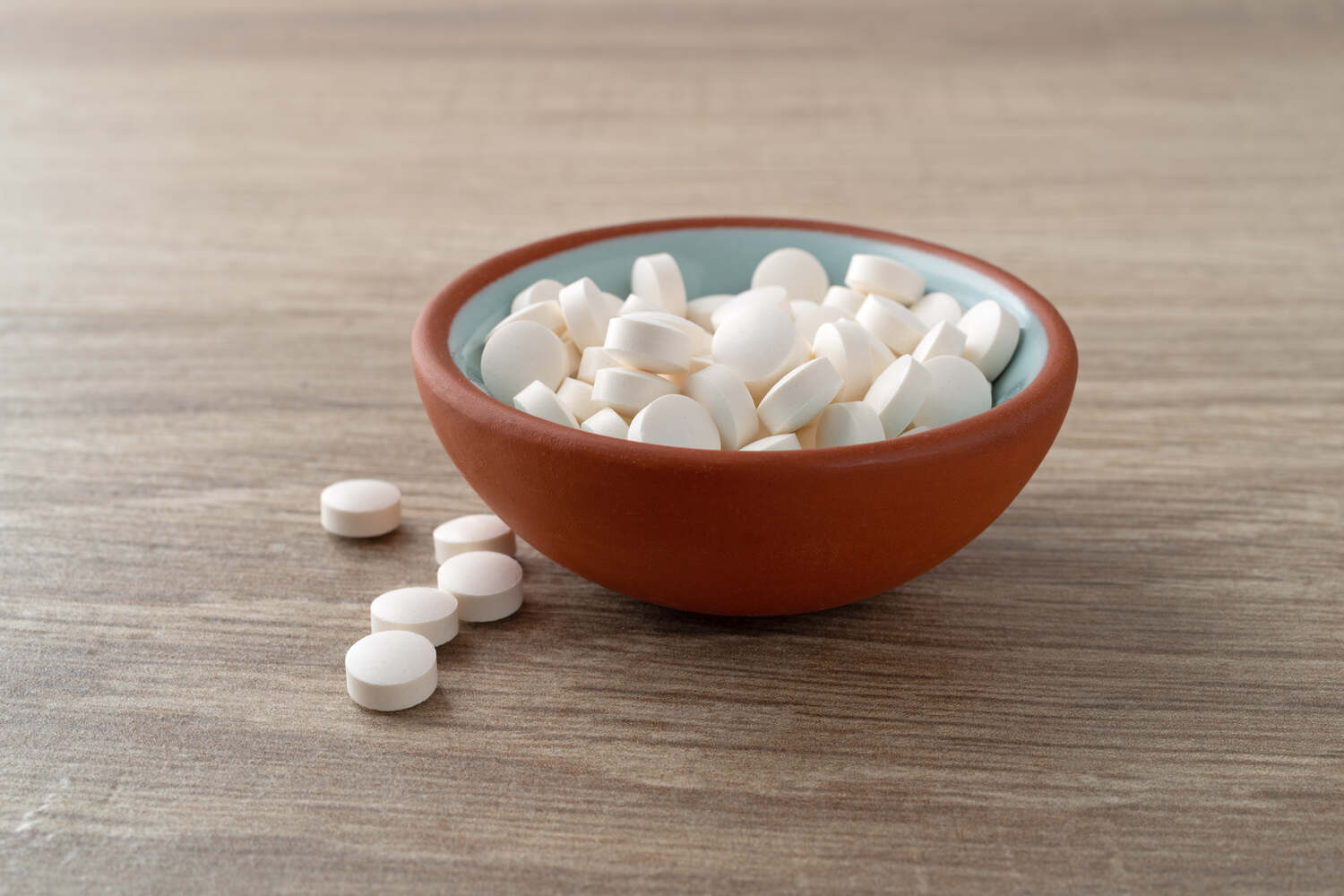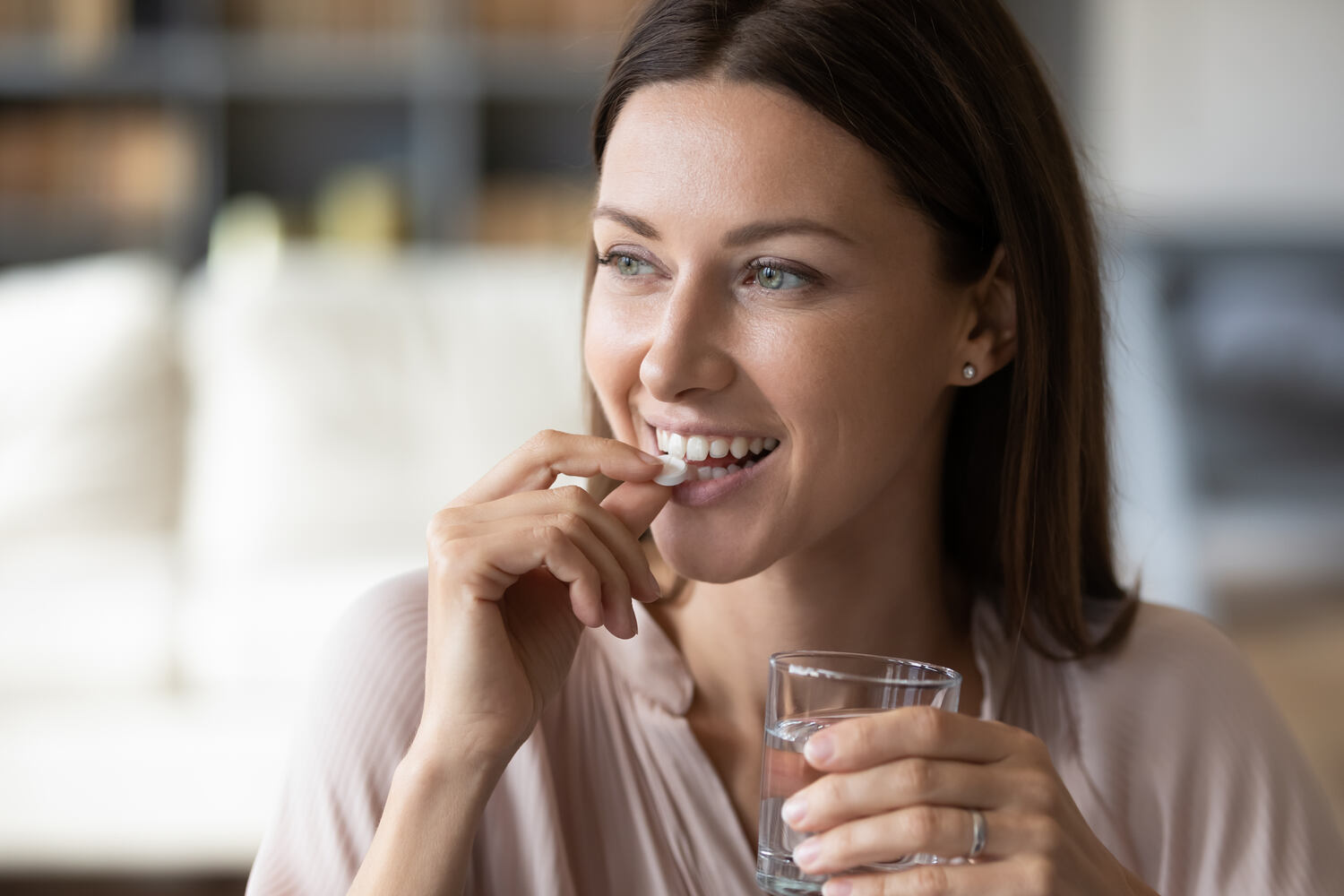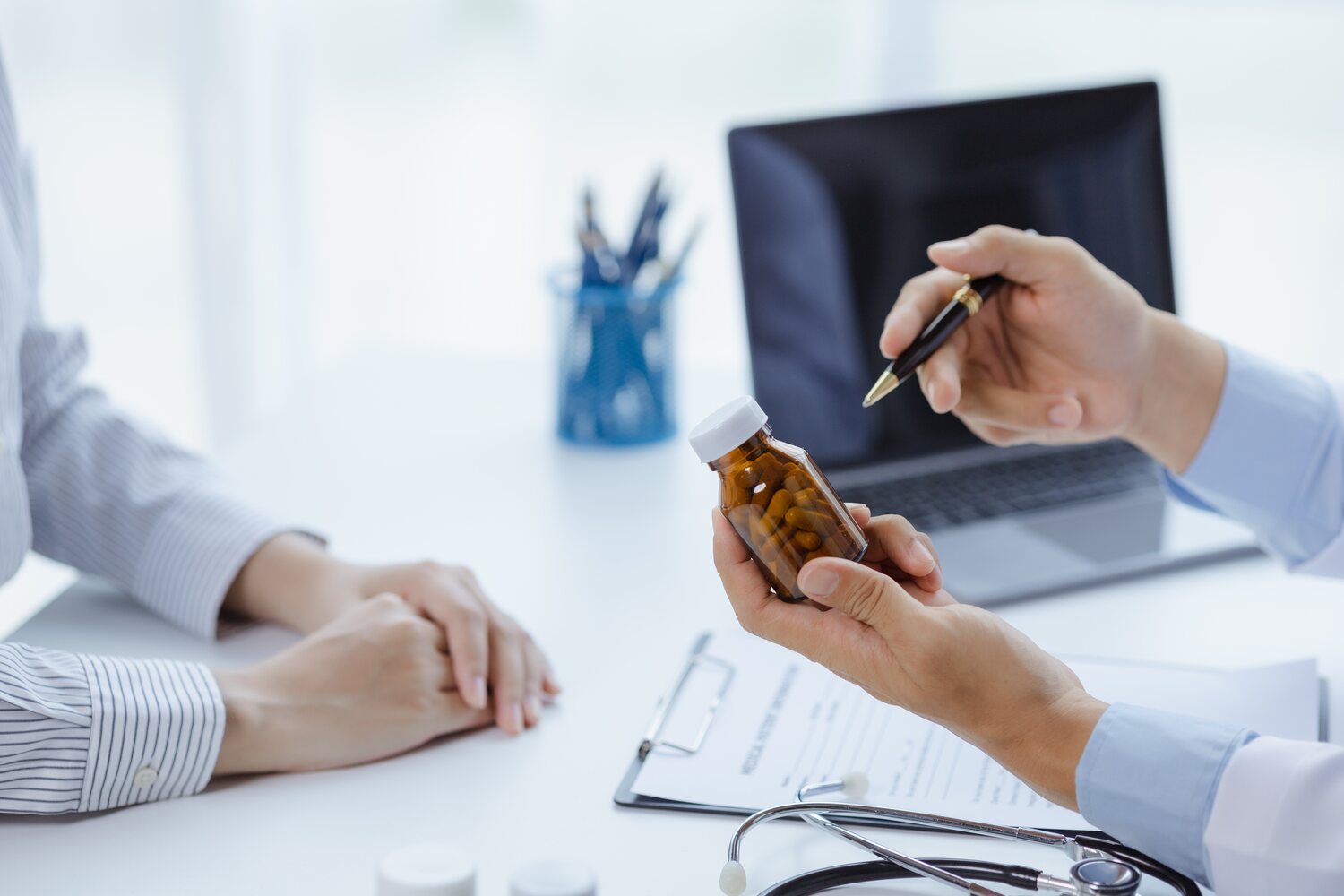
In recent times there is an increasing tendency in couples to postpone childbearing for varied reasons. This may end up in subfertility or infertility affecting 10%-15% (1) of couples of reproductive age. As women cross the childbearing age the ovarian reserve (OR) comes down. A good OR is an indication that the woman has high-quality eggs and achieves pregnancy. DHEA supplements for fertility may come in handy in such situations.
Most women with age-related infertility have diminished ovarian reserve or DOR. In few women, ovarian reserve becomes low or poor at an early age which is known as premature ovarian aging. For fertility doctors both these conditions are challenging for a successful IVF outcome. Among the various supporting medications to deal with these conditions, DHEA is gaining interest among the experts to help mitigate infertility issues to a certain extent.
In This Article
- What is DHEA?
- Does DHEA Promote Fertility?
- How Do DHEA Supplements Help Improve Fertility?
- Who Can Benefit From DHEA Supplementation?
- Top 5 Benefits of DHEA For Fertility
- Are There Any Side Effects of DHEA?
- Recommended DHEA Doses For Fertility
- How to Consume DHEA?
- FAQ’s
What is DHEA?
DHEA is a precursor reproductive hormone. DHEA stands for Dehydroepiandrosterone. It can be naturally found in Jerusalem artichoke( a root vegetable).
In humans, it is produced both by adrenal glands which are present on top of kidneys, and by the ovaries. DHEA is the precursor for two important reproductive hormones estrogen and testosterone. DHEA levels decrease as we age(2),(3).
Does DHEA Promote Fertility?

Yes, many current studies suggest that DHEA can promote fertility by improving ovarian function therefore increasing the chances of pregnancy, and reducing the miscarriage rates by reducing the abnormal division of chromosomes. The studies suggest that DHEA helps in increasing the success of IVF outcomes by improving the ovarian reserve and its response (4),(5).
How Do DHEA Supplements Help Improve Fertility?
DHEA supplementation can increase the ovarian reserve and also stimulate the ovarian response to produce follicles that yield eggs required for fertilization and embryo formation (6).
Diminished Ovarian Reserve (DOR) also called age-related infertility is a condition in which there will be less production of oocytes ( the cells that turn into ovum or egg required for fertilization). DOR is one of the major causes of infertility in women who delay conception in childbearing age.
This condition may lead to fewer chances of pregnancy, a high rate of miscarriage, increase in cancellation rate while treating infertility using different Assisted Reproductive Technologies.
In females having Decreased Ovarian Reserve(DOR) and Poor ovarian response (POR) DHEA supplementation can help stimulate the production of follicles, thereby increasing the production of oocytes otherwise called eggs which are required for fertilization (6A).
As DHEA is a precursor to testosterone, consumption of DHEA is naturally expected to increase the testosterone levels in males increasing the sexual function in males with low energy, low libido, and erectile dysfunction. (7).
Who Can Benefit From DHEA Supplementation?
DHEA supplementation can be beneficial for (3A),(8),(9)
- Women with age-related infertility and DOR
- Young Women with less number of eggs, age-related elevation of FSH levels.
- Women undergoing IVF treatments or other assisted reproductive technologies for infertility with lower success rate.
- Men with early testosterone decline
Top 5 Benefits of DHEA For Fertility

Here are the top ways in which DHEA can benefit your fertility.
1. Enhances Ovarian Function and Its Stimulation
As DHEA is a precursor hormone for androgen, it helps in improving the diminished ovarian reserve by increasing the number of ovarian follicles and mature eggs. This will benefit women who have age-related fertility issues
This also benefits the women who undergo IVF for more egg retrieval as DHEA plays a role in ovarian stimuli to increase egg production (6B).
2. Helps Improve Egg Quality
The egg quality depends on the number of chromosomes it is having. Poor-quality eggs show abnormal numbers of chromosomes. DHEA supplementation can play a role in the formation of chromosomes without abnormality thereby increasing the quality of eggs (10).
3. Improves Pregnancy Outcomes
DHEA plays a role in the formation of embryos and their division. Thus increasing the quality of embryos can lead to desired outcomes in women undergoing IVF and other reproductive assisted technologies.
Also, DHEA may assist in better implantation of embryos by increasing the endometrial thickness and blood flow to it which is important for better implantation and embryos to grow further.
4. Helps Resolve Sexual Dysfunction and Hormonal Imbalance
DHEA can improve several sexual dysfunctions such as vaginal atrophy, sexual interest, dryness of the vagina, and sexual frequency, especially in perimenopausal and postmenopausal women.
PCOS, age-related and stress-related hormone imbalance, and menstrual cycle issues can be controlled using DHEA as it is a precursor for androgens that regulate overall hormonal health in women (11).
5. Helps Resolve Erectile Dysfunction in Men
As DHEA is a precursor of testosterone, DEA supplementation can obviously improve testosterone levels that help in erectile dysfunction (11).
Are There Any Side Effects of DHEA?

DHEA may have side effects due to its hormonal nature. Always consulting the doctor and discussing the side effects is important.
- Women may develop loss of hair on the scalp, deepening voice, body hair especially on the face, weight gain, acne, etc due increase in the production of testosterone by DHEA in the body.
- Due to high testosterone levels, men may develop male pattern baldness, testosterone-related cancers, shrinkage of testicles, aggression, or high blood pressure.
- Young people are not advised to take it unless the blood report shows low levels and are advised by the doctors (12).
- People with hormone-related cancers such as breast cancer, ovarian, prostrate, adrenal, testicular, or having a family history of cancers should not take DHEA as it may adversely affect the hormone levels already present in the body.
- People having PCOS, endometriosis, or other hormone-related disorders taking DHEA may aggravate the condition.
- Due to high testosterone levels, men may develop male pattern baldness, testosterone-related cancers, shrinkage of testicles, aggression, or high blood pressure.
Recommended DHEA Doses For Fertility
Your healthcare practitioner will set the dose of DHEA depending on your gender, age, blood levels of DHEA, and your health conditions. The general recommended DHEA dosage for fertility is 25 mg thrice daily. Obese women may increase their daily intake to about 100 mg (12).
Always take DHEA under the supervision of doctors as it may have direct hormonal effects on the body. Whether to take DHEA long-term use or short-term depends on your condition and the outcome you are looking for.
How to Consume DHEA?

You may take DHEA in the morning to be in sync with the natural system as the body also makes DHEA during this time.
DHEA can be taken orally and is available in different forms such as
- Tablets, capsules, chewing gums, and sublingual tablets (to be placed directly under the tongue).
- Topical cream for skin applications.
- Vaginal suppositories to be inserted directly into the vagina for more localized action.
DHEA supplements for fertility can help women with age-related infertility and women having premature ovarian aging. Most IVF doctors find it challenging when there is no or less scope for egg retrieval for IVF to be successful. Using DHEA supplementation upon doctors’ advice can help many women facing unsuccessful IVF by increasing the number of eggs for retrieval and the quality of eggs which in turn increases the chances of pregnancy and minimizes the miscarriage rates. Always follow up with a doctor while using DHEA.
FAQ’s
1. How Long Does DHEA Take to Work For Fertility?
Studies say a minimum of two months of DHEA supplementation is required before retrieving the eggs for IVF. Over a period of four to five months supplementation is required to show its maximum efficacy.
2. When Should You Stop Taking DHEA For Fertility?
If you conceive while using DHEA, your health care professional may ask you to stop the supplementation after your second positive pregnancy test.
References:
- Definition and prevalence of subfertility and infertility | Human Reproduction | Oxford Academic – [https://academic.oup.com/humrep/article/20/5/1144/2356853]
- Is there a role for DHEA supplementation in women with diminished ovarian reserve? – PMC – [https://www.ncbi.nlm.nih.gov/pmc/articles/PMC3800538/]
- Dehydroepiandrosterone supplementation improves ovarian reserve and pregnancy rates in poor responders – [https://www.europeanreview.org/wp/wp-content/uploads/9104-9111.pdf]
- Dehydroepiandrosterone (DHEA) supplementation in diminished ovarian reserve (DOR) – PMC – [https://www.ncbi.nlm.nih.gov/pmc/articles/PMC3112409/]
- Dehydroepiandrosterone (DHEA) supplementation improves in vitro fertilization outcomes of poor ovarian responders, especially in women with low serum concentration of DHEA-S: a retrospective cohort study | Reproductive Biology and Endocrinology – [https://rbej.biomedcentral.com/articles/10.1186/s12958-018-0409-z]
- Thieme E-Journals – Obstetrics and Gynecology – [https://www.thieme-connect.com/products/ejournals/html/10.1055/a-0882-3791#R8823791-1]
- A dose-response and meta-analysis of dehydroepiandrosterone (DHEA) supplementation on testosterone levels: perinatal prediction of randomized clinical trials – ScienceDirect – [https://www.sciencedirect.com/science/artic[e/abs/pii/S0531556520304587]
- Premature ovarian insufficiency – novel hormonal approaches in optimizing fertility: Gynecological Endocrinology: Vol 36, No 2 – [https://www.tandfonline.com/doi/full/10.1080/09513590.2019.1640203]
- Efficacy of dehydroepiandrosterone (DHEA) supplementation for in vitro fertilization and embryo transfer cycles: a systematic review and meta-analysis: Gynecological Endocrinology: Vol 34, No 3 – [https://www.tandfonline.com/doi/full/10.1080/09513590.2017.1391202?scroll=top&needAccess=true]
- DHEA use to improve likelihood of IVF/ICSI success in patients with diminished ovarian reserve: A systematic review and meta-analysis – PMC – [https://www.ncbi.nlm.nih.gov/pmc/articles/PMC6210617/]
- The effects of dehydroepiandrosterone on sexual function: a systematic review – PubMed – [https://pubmed.ncbi.nlm.nih.gov/28118059/]
- Dehydroepiandrosterone: A panacea for the ageing ovary? – PMC – [https://www.ncbi.nlm.nih.gov/pmc/articles/PMC4534532/]

